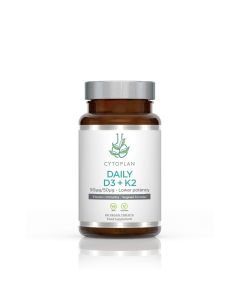Minerals are essential for the normal function of the body and are most effective in their natural form.
We prioritise bio-efficacy by providing minerals in either Wholefood or Food State form. This means they come complexed with naturally occurring amino acids and other food components and are therefore utilised by your body in the same way as food. Wholefood or Food-State supplements are safe, gentle and well tolerated.
Why you should consider a mineral supplement
Mineral deficiencies can be common and therefore choosing a mineral or multi mineral supplement can be supportive for optimal health. Individual mineral tablets or capsules can also offer more specific support.
The level of minerals in our food is intrinsically dependant on the quality of the soil they are grown in. Modern day living means that most of our food is depleted in minerals due to farming methods soil depletion, alongside food transport and processing.
Macrominerals in our range
Calcium and magnesium are macro minerals, meaning that they are required in relatively large amounts by the body. We offer a variety of magnesium and calcium supplements for you to choose from.
Why magnesium and calcium are important for health
Magnesium and calcium work synergistically and are essential for normal bone density, nerve, and muscle function and the balance of these two minerals is important. Magnesium is also an essential cofactor for many processes within the body including the production of neurotransmitters and can therefore have an influence on mood and sleep. Magnesium is quickly depleted in the body by exercise, stress and certain medications.
Trace minerals in our range
Trace minerals are minerals that are required in smaller amounts (milligram or microgram doses) than the macro minerals. Although they are needed in lower doses, they are essential for so many functions in your body, particularly as constituents of hormones and enzymes.
Our trace mineral supplements include zinc, iron, selenium, and copper.
Zinc
We provide zinc supplements in a number of different forms, Wholefood zinc, zinc citrate and also as Food State™ zinc complexed with copper. The ratio of zinc and copper is important as they both compete for absorption, therefore it is useful to supplement both in this optimal ratio when taking long term.
Iron
Iron is essential as a constituent of haemoglobin within red blood cells. Therefore, a deficiency of iron can contribute to anaemia.
We provide iron as Wholefood Iron or Food State Iron™ with vitamin C and molybdenum. These forms, which are recognised by the body as food, are very gentle, better tolerated and more effective at lower doses than synthetic iron tablets.
Selenium
Selenium is a mineral that is particularly difficult to obtain from the diet due to soil depletion, therefore additional selenium is often indicated, particularly for immune and thyroid function.
What are minerals?
Minerals are metals when they are in their elemental form and are derived in our diets from soil. Minerals are taken up and metabolised by plants as a food complex which allows them to be bio-available to us and animals who eat the plants.
When minerals are dissolved in water, they are in ionic or electrolyte form, existing as charged particles. This is how they function within the body. However, when we consume them in our diet they are bound to another molecule, either as a salt or complexed within an organic food based molecule.This ensures they enter into the food metabolic pathways before the mineral is released into circulation.
Minerals play a role in multiple aspects of health especially as cofactors and constituents of enzymes, including the production of hormones and neurotransmitters and stimulating nerve and muscle function.
How do I know if I have a mineral deficiency?
All minerals have different functions within the body, and, unlike vitamins, a deficiency does not necessarily manifest as a specific disease, perhaps with the exception of iron deficiency anaemia.
However, as they are responsible for multiple processes within the body, suboptimal health or the presence of certain conditions can indicate the need for, or a deficiency of, certain minerals.
For example, zinc is essential for immune function and the production of thyroid hormones. So, in individuals who have low thyroid function and poor resistance to infections a zinc supplement may be indicated.
More obvious symptoms of mineral deficiency may be thinning hair, brittle or soft nails and poor skin. These can often indicate a need for nutrients including zinc, iron and selenium.
As magnesium aids muscle relaxation, low levels of magnesium are associated with muscle cramps or spasms.
Reduced bone density can indicate a need for additional calcium and magnesium, alongside vitamin D3 and K2
I've heard of multi vitamins, but can you buy multi mineral supplements?
The majority of supplements known as multi vitamins are actually multivitamin and mineral supplements.
A good quality multivitamin and mineral will provide optimum levels of all micronutrients in the most bioeffective and bioavailable form. You can also obtain mineral supplements as a multimineral although these are less common than multivitamin and mineral supplements.
It is important to note that all nutrients work synergistically and if you are deficient in one nutrient it is likely that others may also be suboptimal. If you are looking for a multi nutrient it is best to opt for a multivitamin and mineral supplement. Additional minerals, such as magnesium and calcium can then be added on top if needed.














